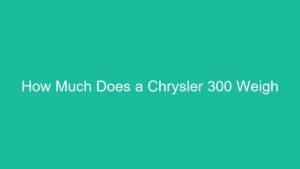
Contents
- Unmasking the Mystery: How Much Are Dealer Fees for a Used Car (and How to Beat Them!)
- What Exactly Are Dealer Fees? (And Why Do They Exist?)
- 🛒 Recommended Product
- Common Dealer Fees You’ll Encounter (and Their Real Meanings)
- How Much Can You Expect to Pay in Dealer Fees for a Used Car?
- 🛒 Recommended Product
- Step-by-Step Guide: Navigating Dealer Fees Like a Pro
- Tips for Minimizing Dealer Fees
- Common Mistakes to Avoid
- Conclusion: Drive Away with Confidence!
- 🛒 Recommended Product
- FAQ
Unmasking the Mystery: How Much Are Dealer Fees for a Used Car (and How to Beat Them!)
Buying a used car can be an exciting journey, leading you to that perfect ride that fits your budget and lifestyle. You’ve researched models, test-driven, and finally found “the one.” But then comes the moment of truth: the dreaded final price breakdown, often padded with a mysterious array of “dealer fees.”
It’s easy to feel overwhelmed, confused, or even duped. Are these fees legitimate? Are they negotiable? And just how much should you expect to pay? Don’t worry, you’re not alone! This comprehensive guide is designed to demystify dealer fees for used cars, empower you with knowledge, and give you the confidence to navigate the buying process like a seasoned pro. Get ready to save some money!
What Exactly Are Dealer Fees? (And Why Do They Exist?)
At its core, a dealer fee is any charge added to the advertised price of a car by the dealership, separate from the vehicle’s selling price, government taxes, and registration costs. Dealers argue these fees cover administrative costs, paperwork, preparing the car, or even advertising. While some fees are legitimate and legally mandated (like sales tax), many others are pure profit for the dealership and can be heavily scrutinized, if not outright negotiated away.
🛒 Recommended Product
Understanding these fees is your first step to a fair deal.
Common Dealer Fees You’ll Encounter (and Their Real Meanings)
Let’s break down the most common fees you might see on a used car purchase agreement, categorizing them by how fixed or flexible they typically are.
Mostly Fixed (Government & Processing – but still vary by state!):
-
Sales Tax:
- What it is: A percentage of the car’s purchase price collected by the dealer and paid to your state government.
- Why it exists: It’s the law!
- Negotiability: Absolutely non-negotiable. This is a government mandate. The percentage varies significantly by state and sometimes even by city or county.
- Key Tip: Research your state’s sales tax rate before you go to the dealership so you know what to expect.
-
Registration, Tag, & Title Fees:
- What it is: Costs associated with legally registering the vehicle in your name, obtaining license plates, and transferring the car’s title.
- Why it exists: Legal requirement for vehicle ownership and operation.
- Negotiability: Non-negotiable. These are government fees, though the exact amount can vary based on your vehicle’s value, weight, or even county.
- Key Tip: Dealers often estimate these fees. If the actual cost is less, they should refund you the difference.
-
Documentation Fee (Doc Fee):
- What it is: A charge for processing all the paperwork associated with your purchase – titling, registration, sales contracts, etc. Dealers often claim it covers the labor and overhead involved.
- Why it exists: It’s a significant profit center for dealerships. While there’s a kernel of truth about paperwork costs, the fee often far exceeds the actual expense.
- Negotiability: This is a tricky one. In many states, if a dealer charges one customer a doc fee, they must charge every customer the same doc fee. This makes it individually non-negotiable at that specific dealership.
- The Loophole: While the fee itself might not be negotiable, the total “out-the-door” price always is. If a dealer insists on a high doc fee, push back on the car’s selling price to offset it.
- Key Tip: Doc fees are often capped by state law, but these caps vary wildly – from $75 in New York to unlimited in states like Florida (where they can reach $900 or more!). Know your state’s cap!
Highly Questionable & Often Negotiable (Pure Profit Centers):
-
Advertising Fee:
- What it is: A charge passed onto the buyer to cover the dealer’s marketing and advertising costs.
- Why it exists: To increase dealer profit.
- Negotiability: Highly negotiable or completely avoidable. This is a cost of doing business for the dealer, not yours.
- Key Tip: Politely refuse this fee. If they won’t budge, push for a corresponding reduction in the car’s price.
-
Dealer Prep / Pre-Delivery Inspection (PDI) Fee:
- What it is: A charge for cleaning the car, topping off fluids, and performing a final inspection before delivery.
- Why it exists: Another profit center. For a new car, some prep is expected. For a used car, the vehicle should already be reconditioned and ready for sale as part of its advertised price.
- Negotiability: Very negotiable. A used car should be sold ready-to-drive. You shouldn’t pay extra for them to make it presentable.
- Key Tip: Insist that this is covered in the vehicle’s selling price.
-
VIN Etching / Anti-Theft Protection:
- What it is: A service where the vehicle identification number (VIN) is etched onto various windows or parts of the car, supposedly to deter theft or help recovery.
- Why it exists: Primarily for dealer profit. While it offers some minimal benefit, the charge (often hundreds of dollars) is vastly inflated for the service.
- Negotiability: Almost always negotiable and often completely refusable. Many dealerships will pre-install this and claim it’s mandatory, but you usually have the right to refuse it.
- Key Tip: If it’s already on the car, argue that you didn’t ask for it and shouldn’t pay. If they insist, ask for proof of its actual cost and push for a significant reduction.
-
Market Adjustment / Additional Markup:
- What it is: A fee added by the dealer, often during times of high demand or low supply (like recent years), to increase their profit margin above the manufacturer’s suggested retail price (MSRP) for new cars, or above their usual pricing for used cars.
- Why it exists: Pure opportunistic profit.
- Negotiability: Highly negotiable. This is entirely arbitrary.
- Key Tip: In a competitive market, simply walk away from any dealership that adds a “market adjustment” fee on a used car. There are other cars and other dealers.
How Much Can You Expect to Pay in Dealer Fees for a Used Car?
This is the million-dollar question, and the answer, unfortunately, is: it varies wildly.
🛒 Recommended Product
- Average Range: Excluding sales tax and registration, which are often significant, you might see anywhere from $200 to $2,000+ in additional dealer fees.
- Key Factors:
- State Law: Heavily influences doc fee caps.
- Dealership Type: Large franchised dealerships often have higher doc fees than smaller independent lots.
- Your Negotiation Skills: The more you push back, the less you’ll pay in questionable fees.
- Market Conditions: In a seller’s market, dealers are less likely to budge on fees.
The most critical number to focus on is the “Out-The-Door Price.” This is the single, total price you will pay for the vehicle, including all fees, taxes, and the cost of the car itself.
Ready to conquer those fees? Follow these steps to ensure you get the best deal:
-
Do Your Homework (Before You Go):
- Research your state’s specific laws regarding doc fees. Knowing the cap (or lack thereof) is powerful information.
- Understand your state’s sales tax and estimated registration costs. Online calculators can help.
- Read online reviews of the dealership. Some dealerships are notorious for excessive fees, while others are known for transparency.
-
Always Ask for the “Out-the-Door” Price:
- When you’re serious about a car, don’t ask for the “best price” or “monthly payment.” Instead, say, “What’s the absolute, total, out-the-door price for this vehicle, including all taxes, fees, and charges?”
- Insist on this number before discussing anything else. This forces them to reveal all the hidden costs upfront.
-
Scrutinize the Itemized List:
- Once you have the out-the-door price, request a fully itemized breakdown of every single charge that makes up that total.
- Go through each line item carefully. Don’t be afraid to ask, “What is this fee for?” and “Is this fee required by law?”
-
Identify Negotiable Fees:
- Based on what you’ve learned above, distinguish between legitimate government fees (sales tax, tag, title) and discretionary dealer fees (doc fees, advertising, prep, VIN etching, market adjustments).
- Highlight the fees you believe are questionable or excessive.
-
Be Prepared to Negotiate:
- Be polite but firm. Start by questioning the discretionary fees. For example, “I see an advertising fee here. I understand that’s a cost of your business, not mine. Can we remove that?”
- If they push back on individual fees, shift the negotiation to the total out-the-door price. “Okay, if you can’t remove the ‘dealer prep’ fee, then I need the selling price of the car reduced by that amount to reach my target out-the-door total.”
- Always negotiate the total price rather than focusing only on monthly payments.
- Set a maximum out-the-door price you’re willing to pay before you start negotiating.
-
Be Ready to Walk Away:
- This is your ultimate power. If a dealer is unwilling to be transparent, remove questionable fees, or reach your desired out-the-door price, be prepared to leave.
- Often, the willingness to walk away will prompt them to reconsider their offer.
-
Get Everything in Writing:
- Before signing anything, ensure the final purchase agreement clearly lists every fee and matches your negotiated out-the-door price.
- Never sign a blank document or one with unverified figures.
Tips for Minimizing Dealer Fees
- Negotiate the “Out-the-Door” Price, Not Just the Car’s Price: This cannot be stressed enough. It’s the only way to ensure you’re comparing apples to apples across different dealerships.
- Don’t Fall for Optional Add-ons: Items like extended warranties, paint protection, fabric guard, or gap insurance should be considered separately and after you’ve agreed on the car’s price and mandatory fees. These are significant profit centers.
- Consider a Private Sale: If the idea of dealer fees is too daunting, buying directly from a private seller eliminates most of these fees (you’ll still pay sales tax in most states, and registration/title transfer fees).
- Shop Around Aggressively: Contact multiple dealerships and get their out-the-door prices in writing (email is great for this). Use competing offers to drive down the price and fees.
- Be Patient: Don’t rush into a deal. Take your time, compare offers, and don’t feel pressured.
Common Mistakes to Avoid
- Focusing Only on the Monthly Payment: Dealers love this because they can easily hide extra fees or extend loan terms, making the overall cost much higher. Always focus on the total out-the-door price.
- Not Asking for an Itemized List: Without a detailed breakdown, you have no idea what you’re actually paying for.
- Assuming All Fees Are Non-Negotiable: As discussed, many are pure profit and can be challenged.
- Feeling Rushed or Pressured: A reputable dealer will give you time to review the paperwork and make an informed decision. High-pressure tactics are a red flag.
- Signing Without Understanding: Read every line of the contract before you sign. If you don’t understand something, ask for clarification. If you’re still unsure, don’t sign.
Conclusion: Drive Away with Confidence!
Dealer fees are a reality of buying a used car, but they don’t have to be a source of frustration or excessive cost. By doing your homework, understanding what each fee means, and focusing on the all-important out-the-door price, you can approach the negotiation process with confidence and clarity.
🛒 Recommended Product
Remember, the power is ultimately in your hands. Be prepared, be patient, and don’t be afraid to walk away if the deal isn’t right for you. Happy car hunting!
FAQ
Q. What are common dealer fees for a used car?
A. Common dealer fees typically include a documentation fee (or “doc fee”), which covers the cost of preparing and processing sales paperwork, state-required filings, and record keeping. Other fees might include a processing fee, pre-delivery inspection (PDI) fee, or a dealer prep fee. It’s important to distinguish these from government fees like sales tax, tag, title, and registration, which are separate and mandated by the state.
Q. Are dealer fees negotiable, or do I have to pay them?
A. While some dealer fees, particularly documentation fees, are often presented as non-negotiable by dealerships (claiming they’re applied uniformly to all customers), others like “dealer prep” or “PDI” might be open to negotiation. Even if a specific fee isn’t negotiable, you can always negotiate the overall “out-the-door” price of the car to effectively offset the impact of these fees. Always ask for an itemized breakdown.
Q. What is a typical range for dealer fees on a used car?
A. The typical range for non-governmental dealer fees varies significantly by state and dealership policies. Documentation fees alone can range from under $100 in states with caps (like California or Illinois) to over $800 in states with no caps (like Florida or New York). When combined with other potential processing or preparation fees, the total for dealer-specific fees often falls within the $300-$700 range, but can sometimes exceed $1,000 in certain markets.
Q. Are dealer fees mandatory, and can I refuse to pay them?
A. Government fees such as sales tax, title, and registration are mandatory and cannot be refused. Dealer-specific fees, like documentation or processing fees, are generally mandatory if the dealership has a policy to charge them to all customers for that specific transaction type, especially if state law permits it. While you can’t usually refuse a mandatory dealer fee directly as a line item, you can and should negotiate the total “out-the-door” price of the vehicle to effectively absorb or reduce the impact of these fees.
Q. How do state regulations impact dealer fees for used cars?
A. State regulations play a significant role in dealer fees. Some states impose caps on certain fees, like documentation fees (e.g., California, New York has a very low cap), while others have no cap at all, allowing dealerships more discretion. Some states also require explicit disclosure of all fees upfront. It is highly recommended to research your specific state’s laws regarding dealer fees before visiting a dealership.
Q. Is the advertised price of a used car inclusive of all dealer fees?
A. Generally, no. The advertised price (sometimes referred to as the MSRP or internet price) for a used car typically does not include dealer fees, sales tax, tag, title, or registration fees. Dealerships are usually required to disclose these additional costs before you finalize the purchase, but it’s crucial for consumers to explicitly ask for a full, itemized “out-the-door” price estimate early in the negotiation process to avoid surprises.
Q. What’s the difference between legitimate dealer fees and ‘add-ons’ I can decline?
A. Legitimate dealer fees are typically standard processing charges that apply to every customer for the sale of the vehicle (e.g., documentation fee) and are often non-negotiable as individual line items. “Add-ons,” on the other hand, are optional products or services a dealer might try to sell you, such as extended warranties, paint protection, fabric protection, VIN etching, nitrogen tire fills, or service contracts. You can almost always decline these optional add-ons, even if the dealer pressures you to accept them.
Related Articles
How Much Does a Tesla Cybertruck Cost
How Much Does a Tesla Cybertruck Cost? Your Ultimate Guide to Pricing & Purchase The Tesla Cybertruck has captured imaginations with its futuristi…
How Much Is a Tesla
How Much Is a Tesla? Unpacking the Cost of Your Dream EV Dreaming of driving a Tesla? You’re not alone! These innovative electric vehicles have …
Affiliate Disclosure: As an Amazon Associate, I earn from qualifying purchases made through links on this site.















